Baraja Morisca — Early XV century playing cards
Primitive Latin suited pack, dated by paper analysis as early XV century, which makes this one of the earliest known surviving packs of playing cards.
Baraja Morisca¹ ~ an early suit system
This 48-card gothic era pack is preserved in the Fournier Museum at Vitoria-Gasteiz (Spain). It was originally classified as Italian, but this identification has been revised to “probably Catalan origin”. The estimated date has also been narrowed down to c.1400-1420.
These are popular, more democratic playing cards, rather than luxury hand-painted cards for the élite. Making cards economically from woodblocks is easier when packs have either 40 or 48 cards (2 x 24) instead of 52 cards. That's why, after the early 1400s, Spanish-suited packs typically dropped the 10s and had pip cards 1 to 9, along with three court cards (10, 11, and 12).
The cards were coloured by a technique known as 'a la morisca' which involved using the fingers dipped into the pigment. As their popularity spread, new methods of production were discovered to produce packs of playing cards more cheaply.
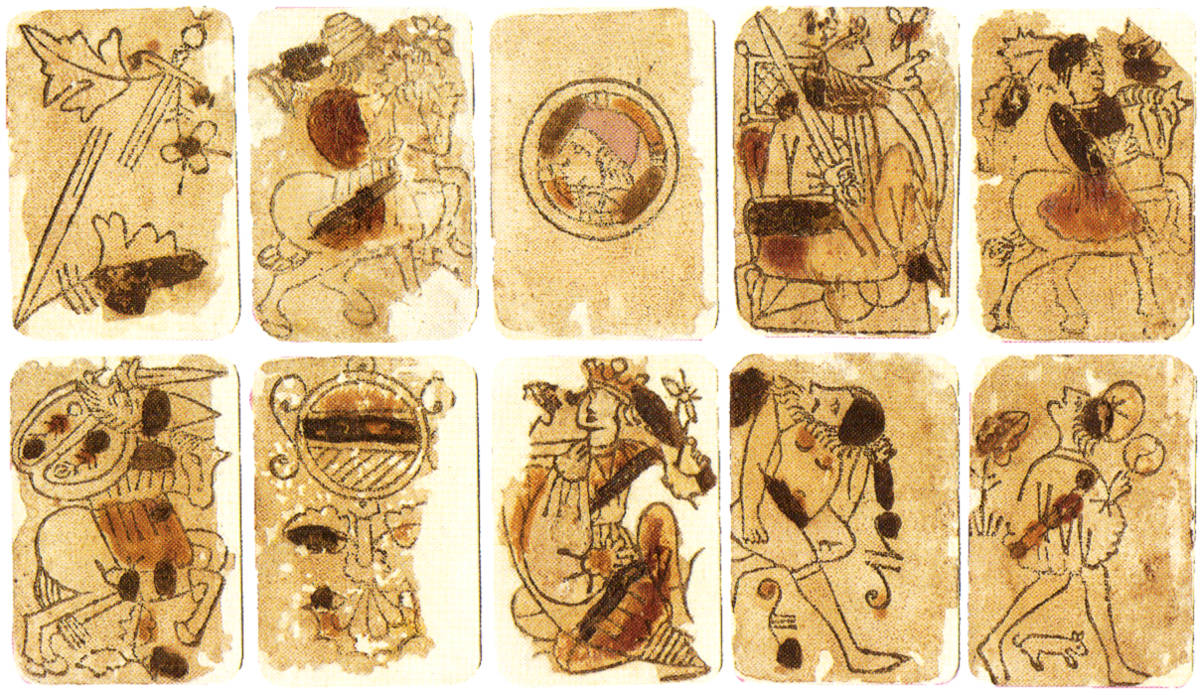
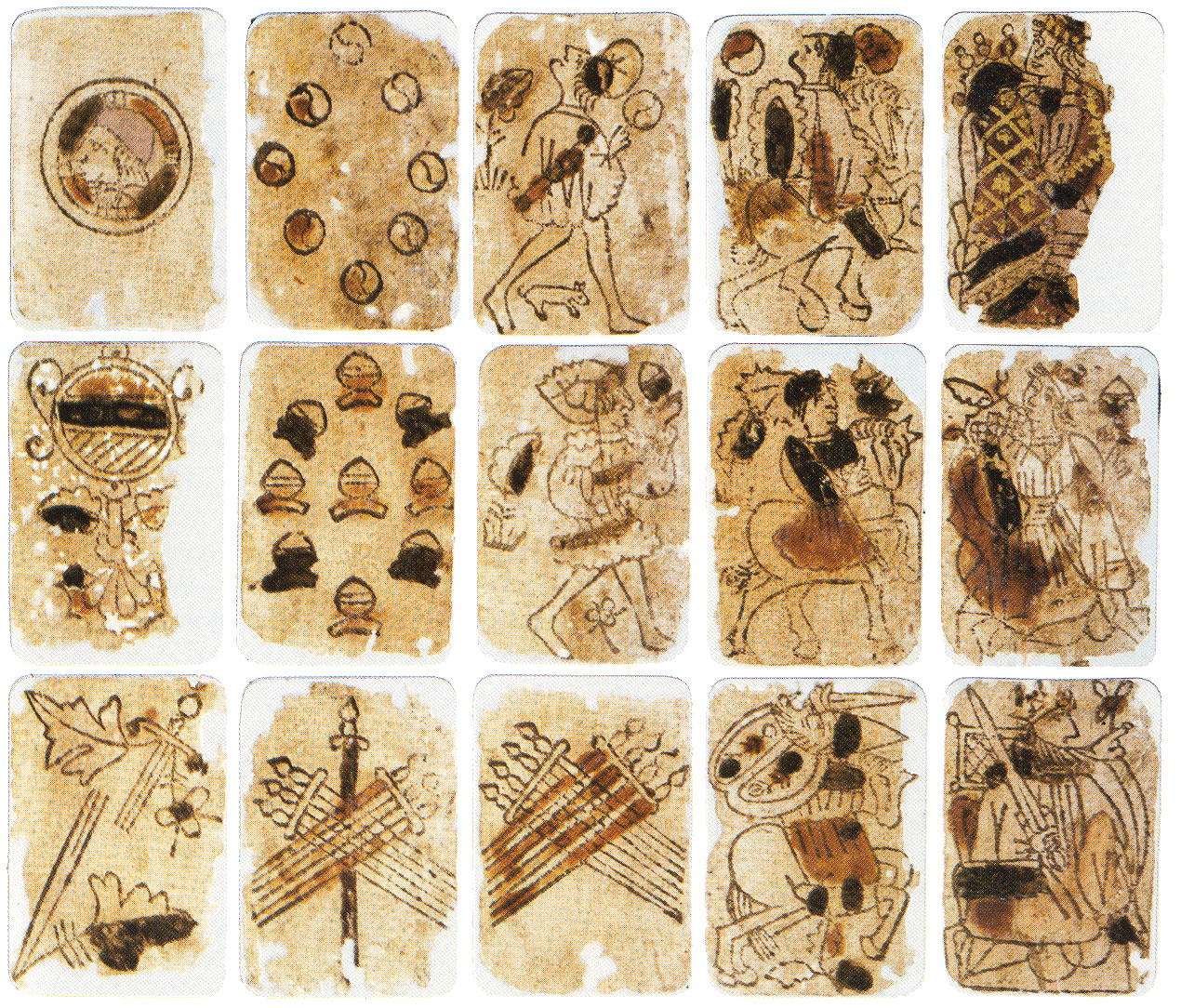
Above: cards from a primitive Latin suited pack, possibly of Catalan manufacture, dated by paper analysis as “early XV century”, which makes this one of the earliest known surviving packs of playing cards. There are Moorish influences in some of the cards: see the double-panelled Saracenic shield on the cavalier of swords (bottom row). As the pack is incomplete it is not possible to ascertain whether it ever contained 10s but we reckon that it would have been a 48-card pack for the reason already mentioned. Plain backs, 95x65 mm.
The cards show lingering evidence of a suit system derived from early Arabic cards originating from the Mamluk Sultanate, which in turn spread to various parts of Europe during the 15th century. It seems that the original 52-card format was adjusted to 48 cards for practical reasons when woodblock printing was adopted to mass-produce cards. The cavalier of swords holds a double-panelled Saracenic shield which was common in Muslim-occupied Spain at that time, with a kind of double tassel made of silk and feathers. Thus the artist was copying what s/he could see in real life.

Images on this page of cards in the Museo "Fournier" de Naipes de Alava (Diputación Foral de Alava, Cuchillería 54, 01001 Vitoria-Gasteiz, Spain) are taken from Agudo Ruiz (2000) and Suarez Alba (1991). Used with permission.
See Online Catalogue of the Museo Fournier de Naipes de Álava►
¹ Note on the term "morisca": The moriscos were Muslims in Spain who, after the Reconquista in 1492, were required to convert to Christianity in order to remain in the territory. They were called "moriscos" to differentiate them from "moros," which referred to Muslims from North Africa. This was part of an effort by the Catholic Monarchs and their successors to unify the country under Christianity, especially after the fall of Granada in 1492.
Before the Reconquista, the moriscos, then simply known as Muslims or "Andalusians," were part of the multi-cultural Islamic society in Al-Ándalus, governed by Muslims from the 8th to the 15th centuries. Muslims, Christians and Jews coexisted. Most Muslims in Al-Ándalus were farmers, artisans, and merchants, and they introduced techniques like irrigation systems, waterwheels, and the cultivation of fruits and vegetables such as citrus, rice and sugarcane.
By Simon Wintle
Spain • Member since February 01, 1996 • Contact
I am the founder of The World of Playing Cards (est. 1996), a website dedicated to the history, artistry and cultural significance of playing cards and tarot. Over the years I have researched various areas of the subject, acquired and traded collections and contributed as a committee member of the IPCS and graphics editor of The Playing-Card journal. Having lived in Chile, England, Wales, and now Spain, these experiences have shaped my work and passion for playing cards. Amongst my achievements is producing a limited-edition replica of a 17th-century English pack using woodblocks and stencils—a labour of love. Today, the World of Playing Cards is a global collaborative project, with my son Adam serving as the technical driving force behind its development. His innovative efforts have helped shape the site into the thriving hub it is today. You are warmly invited to become a contributor and share your enthusiasm.

Leave a Reply
Your Name
Just nowRelated Articles

Moorish Deck
Review of “Trzes’ Moorish Deck” facsimile published by Ulrich Kaltenborn, Berlin, 2023.
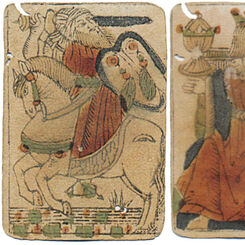
XV Century Spanish-suited playing cards
XV Century Spanish-suited playing cards with moorish influences
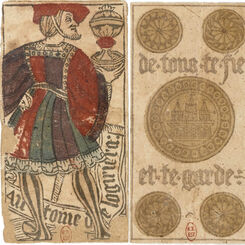
Antoine de Logiriera
Archaic Spanish-suited playing cards published in Toulouse by Antoine de Logiriera (1495-1518).
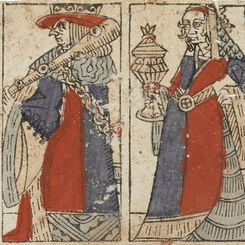
J. Deluy c.1490s
Archaic Spanish-suited cards produced by J. Deluy c.1490s.
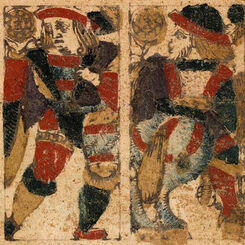
Toledo, 1584
Archaic Spanish-suited deck with 48 cards made in Toledo in 1584.
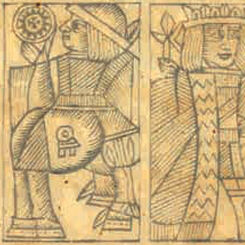
Navarra Pattern, 1682
Navarra pattern produced for the Pamplona General Hospital Monopoly in 1682.
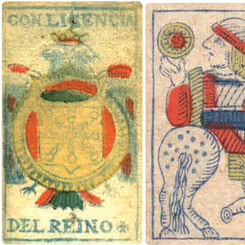
Navarra Pattern
Navarra Pattern produced for the Pamplona General Hospital Monopoly.
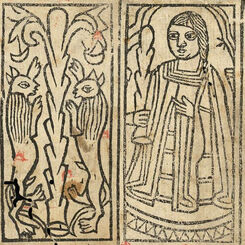
XV Century Catalan playing cards
XV Century Catalan Playing Cards, featuring four female Sotas, four Aces and four cards from the sui...
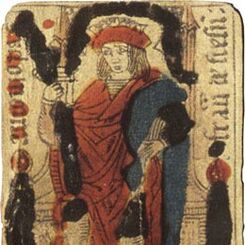
The Combination of Images and Text on early playing cards
When playing cards have titles or legends these reference a written/literary tradition of some form....
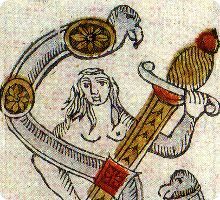
Joan Barbot
Joan Barbot, San Sebastian c.1765-1810.
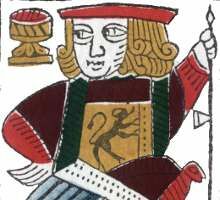
Navarra, XVII Century
Facsimile of 17th century Spanish-suited playing cards produced by Erregeak, Sormen S.A., Vitoria-Ga...
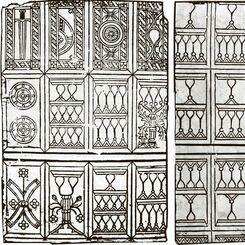
Moorish playing cards
These two uncoloured, uncut sheets of early Moorish playing cards were formerly preserved in the Ins...

Gothic Spanish-suited cards
These cards may be a typical example of early 'standard' Spanish playing cards, maybe from before Co...
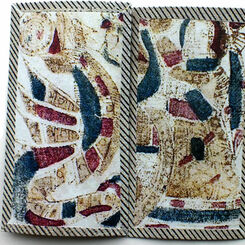
Francisco Flores
Playing cards in this style have been discovered in various parts of the world, suggesting that they...
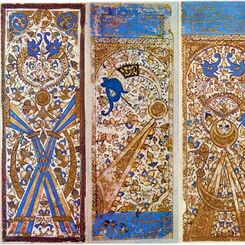
Mamluk Playing Cards
Nã'ib, the game of lieutenants... these cards are amongst the earliest Arabic playing cards ext...
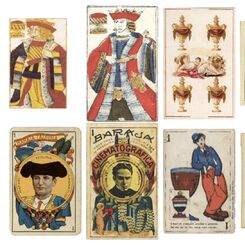
Spanish Playing Cards ~ La Baraja Española
Spain has played a pivotal role in the history of playing cards in Europe and Latin America.
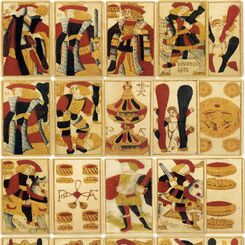
Phelippe Ayet, c.1574
Archaic, late medieval Spanish-suited playing cards printed by Phelippe Ayet, c.1574.

Hand-made Spanish Suited Playing Cards
Decks are made on two-ply pasteboard which reproduces the tactile quality of antique cards.
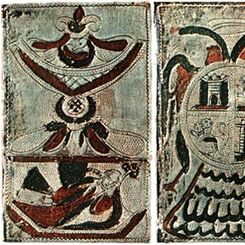
Silver Cards from Peru
Spanish-suited silver cards, richly embellished and enamelled, from a former Spanish Viceroy in Peru...
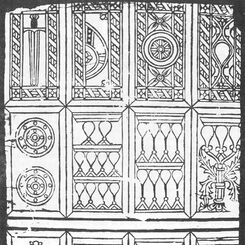
A Moorish Sheet of Playing Cards
This article was originally published in “The Playing-Card”, the Journal of the International Playin...
Most Popular
Our top articles from the past 60 days


 Your comment here. Your comment here. Your comment here. Your comment here. Your comment here. Your comment here. Your comment here. Your comment here. Your comment here. Your comment here. Your comment here. Your comment here. Your comment here. Your comment here. Your comment here. Your comment here. Your comment here. Your comment here. Your comment here. Your comment here. Your comment here. Your comment here. Your comment here. Your comment here. Your comment here. Your comment here. Your comment here. Your comment here. Your comment here. Your comment here. Your comment here. Your comment here.
Your comment here. Your comment here. Your comment here. Your comment here. Your comment here. Your comment here. Your comment here. Your comment here. Your comment here. Your comment here. Your comment here. Your comment here. Your comment here. Your comment here. Your comment here. Your comment here. Your comment here. Your comment here. Your comment here. Your comment here. Your comment here. Your comment here. Your comment here. Your comment here. Your comment here. Your comment here. Your comment here. Your comment here. Your comment here. Your comment here. Your comment here. Your comment here.




















